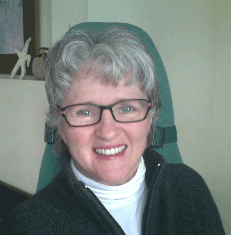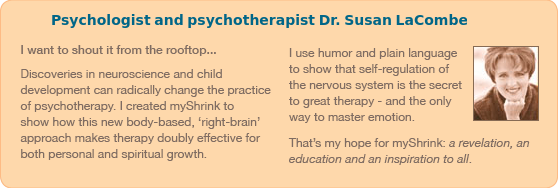Could 2598 therapists be wrong? In 2006, a survey was sent out to hundreds of therapists. It asked:
"Which figures have most influenced your practice?".
Overwhelmingly--as in 1982--they said,
"Carl Rogers".*
Written May 4, 2016; Updated August 16, 2020
Carl Rogers Theory and his Client Centered Approach
Client-centered therapy, originally called Person Centered Therapy ("PCT") has the same impact today as it did 25 years ago. Like others in the field of humanistic psychology, Roger's theory goes to the core of who we are as human beings - afterall we are social animals.
His client centered approach relies upon attunement in the therapeutic relationship as a means to change. And as we know, the crucial importance of attunement has been borne out by extensive neuroscience research in recent years.
If your therapist says she uses a "Rogerian" or "client centered" approach here are some of the basic benefits you may experience:
The client is the "expert".
This is a non-medical approach. Clients (not "patients") do not require "fixing" but are valued for what they bring to the session. Psychological interpretations of one's unconscious are also not included (so you're safe on that count 😉
A therapist guides in a non-directive way.
This means there's a heavy emphasis on NOT telling you what to do, but enabling and empowering you to discover your own solutions. This might be a little irritating to you if you came seeking advice. (For more insight on this subject you might enjoy reading a counseling article on advice giving.)
She will also move at a pace that you control. (From a reptilian brain point of view, you can't get any better than that.)
Human beings will thrive, given a supportive, nurturing and caring other.
If your therapist is proficient at a client-centered approach you should feel really understood by her. The emphasis is on how you experience your world. And who wouldn't want this!
The human spirit always strives for greater integration.
She would be very supportive of your efforts to reach towards your potential.

The curious paradox is that when I accept myself just as I am, then I can change. --Carl Rogers
Carl Rogers before his interview with "Gloria"
Carl Rogers highlights elements of his model using his session with a client named Gloria. Gloria became famous as she was interviewed by three outstanding therapists of the time, Rogers being one of them. (The other two were Fritz Perls and Albert Ellis.)
BTW, if you were ever curious about activation you might notice how activated Rogers was in the scene.)
What techniques might a Rogerian therapist use?
Carl Rogers was best known for coining a term that is well recognized today: reflection.
Imagine you happen to say, Oh, I had a shitty day today" and your therapist remarks, "not a good day, eh?", your therapist is making a "reflection". She is mirroring back to you and checking in with you to see if her words capture the essence of how you feel.
What's very important and sometimes overlooked in the Rogerian approach is that the therapist must reflect in an embodied way. If you felt that your therapist truly "sensed" what you were feeling then your therapist is doing this in the spirit of what Rogers suggested. He did not suggest that therapists merely "mouth" the words back to the client.
In some ways Carl Rogers was a man of his times. In others, I think he was ahead of his time.
Carl Rogers' clinical approach was quite a departure from his predecessors. Rogers emphasized the therapeutic relationship in positive terms. He was one of the first psychologists to talk about optimal mental health. He engaged clients with a sincere appreciation of their own expertise in themselves. Less of an "expert" he was more a co-facilitator in clients' own therapeutic journey.
He was enormously popular in the 60 and 70's. His positive view of the human spirit through his "actualizing tendency" fit right in with the upbeat era. Many of his ideas are so mainstreamed I think we sometimes fail to recognize them. What budding new therapist doesn't understand "reflection" for instance.
I think Dr. Rogers would be very pleased with the current emphasis on the "present moment" as described by Daniel Stern and "attunement" as described by Allan Schore. Rogers' description of the necessity of a therapist to be "congruent and genuine" suggests to me that therapists would only attain this state if they were as Daniel Siegel suggests, "neurally integrated".
In other words, I think Rogers would recommend that therapists do their own work if they are to be as engaged as he describes.
Notes
*(Survey conducted by Dr. Joan Cook and the folks at the Psychotherapy Networker)
best known for
Reflection
Positive Regard
The Actualizing Tendency
books
Client Centered Therapy (1951)
Way of Being (1980)
essay
On Becoming a Person (1961)
good summary by
Reflections on Therapy -
Patient to Rogerian therapist: I have a problem with intimacy.
Therapist: I see. Yes. You have a problem with intimacy.

Patient: I can't stay in relationships.
Therapist: You can't stay in relationships.
Patient: I can't stay in relationships.
Therapist: You can't stay in relationships.
Patient: I feel like leaving again.
T: You're thinking of leaving again.
P: Yes, I'm going to do it NOW.
T: You want to do it now......

Reader Comments

Maria
Using Rogers' theory in practice
I am so glad that you posted an article about Carl Rogers. I am a PCT Counsellor and I truly believe in his theory as I am using it in my practice. Thank you so much for the great article.
Maria (Calgary, Alberta, Canada)

Dave
Big fan of PCT ("Person-Centered Therapy)
Hello Dr. Suzanne LaCombe, I love how you described Rogers work and I am a big fan of PCT. Thanks for a great article and look forward to reading more!
Dave (KENT, WA, United States)

Claude
Solution Focused Brief Therapy ("SFBT")
Hello Dr Shrinklady SFBT means Solution Focused Brief Therapy:) Peace and Love -Claude ( Author: Peace of Mind: Reflect,smile and laugh)
Claude (SK, Canada)

Shrinklady
Well thanks so much Claude.
Shrinklady

Hadjer
Rogers' techniques easily understandable
Rogers' techniques are simple and easy to understand even for students who do not know him.
Hadjer (Algiers, Algeria)

Danielle
Rogers' approach not necessarily directive
Hi there, I am a total Rogerian fan and a fairly new counsellor. I find that many counselling professionals feel that Rogerian style counselling is simple and requires a directive technique, I think they are missing the boat.
Danielle (Courtenay, British Columbia, Canada)

Shrinklady
Hi Danielle, I wasn't quite sure what you meant. By "directive technique" are you saying they tend to dismiss his approach because they feel it's too "techie-like"?
Shrinklady

Dave
SFBT was made for Client-centered therapy
I believe that's Solution Focused Brief Therapy. And the two really are made for each other.
Dave (Vancouver, Canada)

Johnnie
Combining Rogers' approach with SFBT
You have done a great job of describing Roger's work and techniques. I like to combine person-centered with SFBT techniques. Your site has some great history and info.
Johnnie (arkansas, usa)

Shrinklady
Well thanks Johnnie. What's SFBT?
Shrinklady


